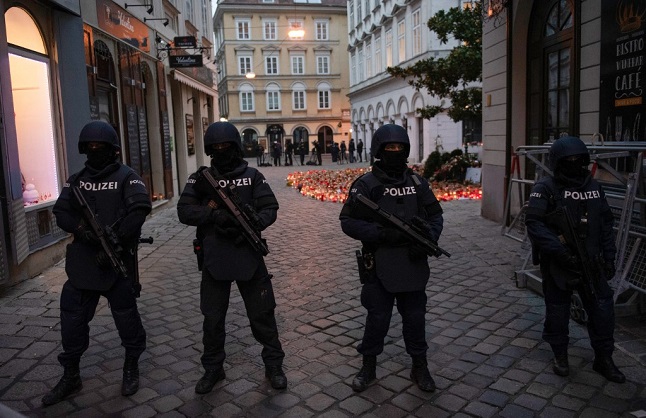The Vienna police force announced its Directorate for State Security & Intelligence received information that an “Islamist-motivated attack” was planned in Vienna and decided to increase surveillance and guards in specific points in the capital, according to a statement on Wednesday.
In a short post on Twitter, the police said that, because of that, uniformed police forces are visible in public space, consisting of district forces and special operation forces WEGA and EKO Cobra.
“The duration of this increased property protection cannot be estimated at this time.”, the police said.
It added: “If there is a specific danger to the population at a specific location, the LPD Vienna will immediately issue a warning via all available channels.”
A shorter version of the statement was also tweeted in English by the Viennese police Twitter account:
#W1503 Our intelligence services have reason to believe that an assault with an islamistic motive is planned to be carried out in Vienna. As precautionary measure neuraligic points of interest have been put under increased guard by regular & special operation police forces. 1/2
— POLIZEI WIEN (@LPDWien) March 15, 2023
A police spokesman confirmed to the newspaper Der Standard that officers were sent to particular locations “especially churches”.
The authorities also asked people to avoid spreading rumours or sharing photos and videos of police intervention, which could help potential perpetrators and endanger the emergency forces.
There is no immediate danger, police spokesman Markus Dittrich told Radio Wien. “No reason to panic”, he said.
He added: “Police officers are equipped with bulletproof helmets and vests and an assault rifle. They will carry out surveillance activities and also carry out checks in road traffic”.



 Please whitelist us to continue reading.
Please whitelist us to continue reading.
Member comments